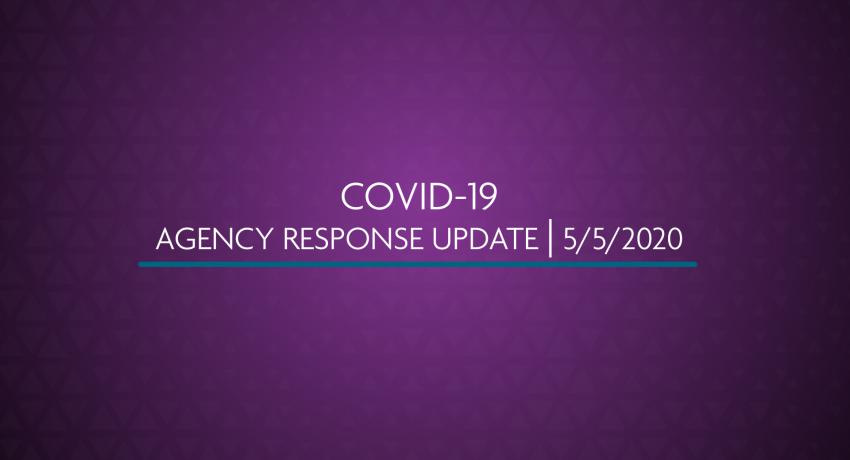Secretary Ross Hunter discusses DCYF’s response to COVID-19 in this short video.
We’re entering the adjustment phase of the pandemic response. Last week, Governor Inslee extended the Stay Home, Stay Healthy order while relaxing a few restrictions to allow for construction and outdoor recreation. It’s the beginning of what he describes as “turning a dial, not a switch.”
We’ll see more incremental moves of this dial, but the world is not going back to where it was in January anytime soon, and probably not until there is a vaccine that’s been widely distributed, along with ubiquitous and rapid testing, and contact tracing ability to isolate outbreaks.
We’ll be living with this for a while, and it’s going to take some adjustment from all of us.
Our work at the Department of Children, Youth, and Families is fundamentally difficult. We connect to and help children and families. This is the heart of social work, it’s the heart of education for kids, and it’s the only way the adolescents we work with are going to heal from their trauma.
DCYF is working hard to make smart adjustments that help keep our clients and staff safe, but still enable the agency to accomplish its mission of keeping kids safe so they can flourish.
- We infused cash into the child care sector to keep providers serving low income children in business.
- We implemented the infectious disease protocol in Juvenile Rehabilitation, severely limiting flow on and off campuses of our facilities.
- We made changes to the in-person requirements in child welfare to balance public health with what’s best for individual kids and families.
- DCYF is developing an agency-wide strategy for continued telework arrangements.
- Following guidelines from the DOH, we’ve canceled meetings of 10 or more people through the end of May, and child care providers are operating with only 10 people per classroom at any given time.
- Video meetings will continue in place of in-person visits wherever possible for the safety and health of everyone.
These are “structural” adjustments, designed to make the system work better and be safer for everyone involved. We’ll keep making these adjustments as the situation changes and we learn about what works and what doesn’t. This is being “smarter.”
Healthier is harder. We are all making adjustments and this situation creates a level of underlying stress that is easy to underestimate.
Like many of you, I’m in one of the high-risk groups. I’m particularly careful, and I’m sending this video from an improvised studio in a spare corner of my house.
It’s a new world. My heart goes out to everyone affected by this pandemic. We all need to do what we can to be both smart and healthy during this challenging time. Most importantly, we must remember that we are in this together.
Thank you. Stay safe and wash your hands.

